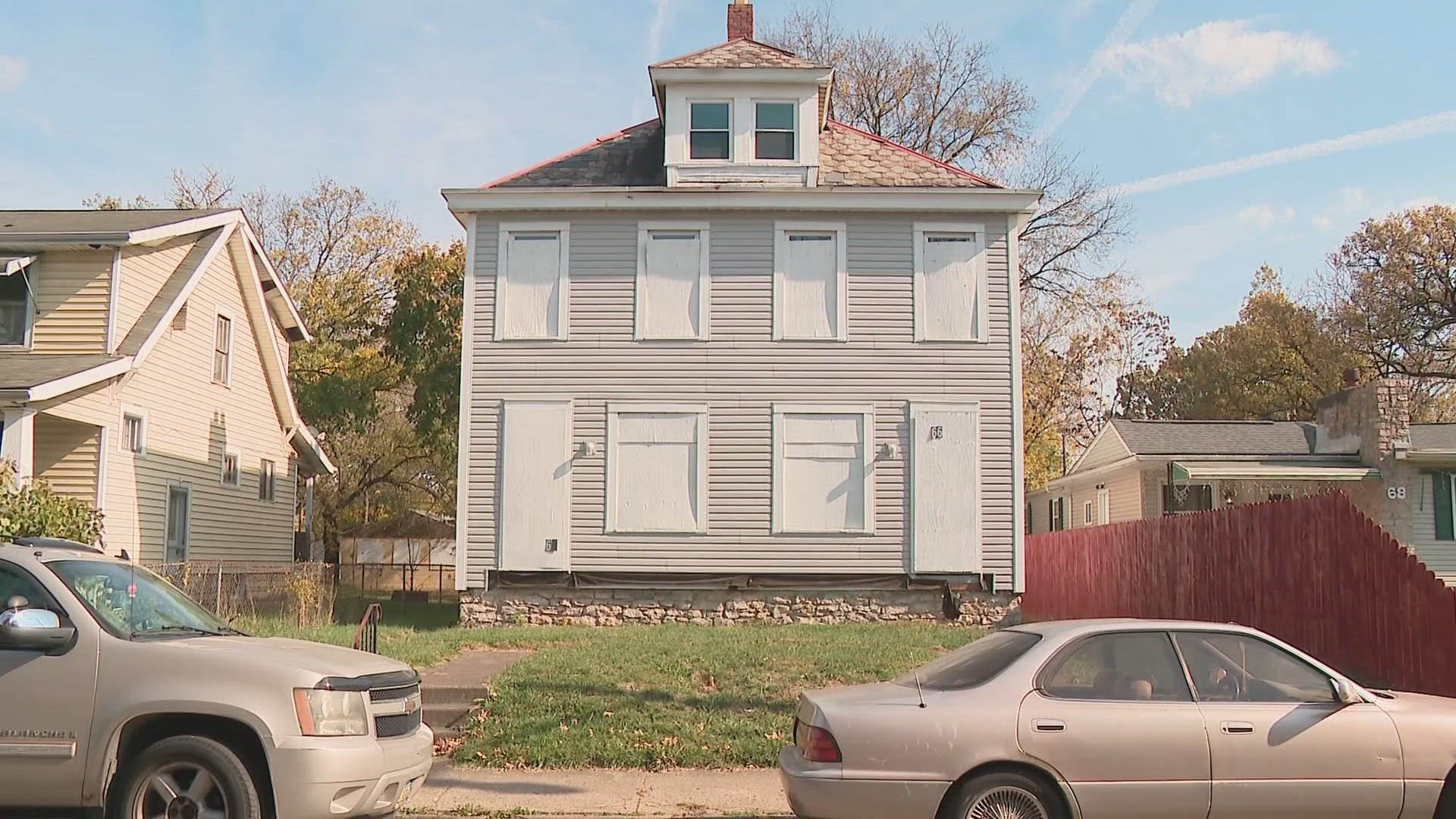COLUMBUS, Ohio — Carla Carr has lived in the Hilltop for seven years.
She told 10TV at recent community town hall, in that time she's noticed a few constant issues — one of which is vacant homes.
For Carr her concerns about these homes are two-fold. For one — she thinks they could be better used to house folks address concerns about a need for more affordable places to live in the city. But she also said that homes are often left unsecured and not kept up.
To her, the blight connected to these units are having an impact on the community's physical and mental wellbeing.
"What are we really teaching our children if this is what they’re used to seeing?" she said.
It’s an issue 10 Investigates also found at a home on Safford Avenue in the Hilltop.
According to the city, people who live nearby called 911 about that property 29 times between November 2023 and May 2024.
As a result, a squatter who kept returning to the property was arrested five times.
That house is one of 2,870 vacant properties that Columbus Code Enforcement counted at the beginning of the year.
The Hilltop, which is designated as “Zone 2” is home to more than 500 of those properties.
10TV asked Carr if she's shared her concerns with the city.
She said she has.
"Well, 311 does work most of the time and the assumption is that the property owner is going to remedy the issue. But when you have slumlords, they don’t care. They’re not going to remedy the issue so you have these ones that are just reoccurring," she said, "A lot of the responsibility of taking care of these properties that are left boarded up for years falls on the neighbors."
While it’s not illegal to own a vacant home in the city, 10TV asked Deputy Director of Building and Zoning Services Anthony Celebrezze about what they were doing to hold nuisance property owners accountable.
“If they choose not to comply or they choose not to maintain it at least then we’re going to have to move forward and take it to the environmental court," he said.
But the process to get these “problem properties” in front of a judge isn't quick.
10TV asked Mayor Andrew Ginther about the long wait for solutions.
Is there a way to speed up that process to both give owners chance to fix what's wrong but also hold them accountable in a way that's a bit faster?
"We’d be all for it. I think based on the way case law works and the court systems and the ability for property owners to have a very long thorough process can be frustrating to me and people in the community but we have to follow the law and follow that process," said Ginther
Melissa Green represents the Hilltop on City Council.
10TV asked her what the city was doing to push more accountability for property owners in her district — and she pointed to the city's long-awaited vacant home registry.
The initiative that created the registry was passed in July.
It requires property owners to register vacant properties with the city. If they don't, they could face fines of up to $150 a day until they do.
"That way we can more proactively monitor those vacant homes to make sure that they're maintaining code compliance. Um, and try to help encourage uh our property owners to put them to a more productive use, I think is a really important step on the policy perspective that's gonna help us go even further," she said.
But it's a process that Carr worries might not have enough teeth.
"They get assessed a fine because they won’t clean the back of their yard of all the trash, [and] they just pay that right along with the taxes. A $150 fine, if that gets added to their taxes they don’t care. They'll just pay it too. They'll just raise the rent," she said.
That registry rule is expected to take effect in January 2025.
But this is a topic 10TV is working to follow-up on right now.
10 Investigates is digging deeper to learn more about how Franklin County's Environmental Court works and if there's a way to provide property owners with due process — while speeding up the process.

